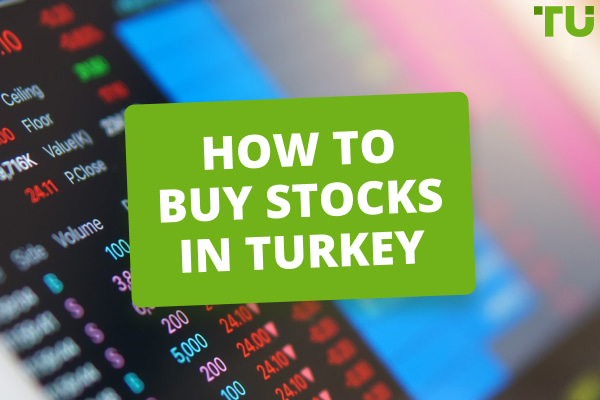Standard Operating Hours of the U.S. Stock Market

Top commission-free stock broker - eToro
The major US stock markets, the NYSE and NASDAQ are open from 9:30AM to 4PM local time (EST), from Monday to Friday. There are 13 national holidays and surrounding days where markets are closed all day, or close early. The opening hours of the US stock market can lead to increased volume, volatility, and liquidity in other financial markets such as Forex.
The United States of America is home to the world’s biggest economy by GDP and to the two largest stock exchanges on Earth by market capitalization - the New York Stock Exchange (NYSE) and the NASDAQ. These two stock exchanges command 42.4% of total global market capitalization, with a combined value of $46.7 trillion as of August 2023.
Due to the weight of these markets and the amount of capital that moves through them, it's important for traders and investors to know which hours US stock markets operate. In this article, we explain the opening hours of the US stock markets and which days they close, so that you’ll always know whether the stock market is open today.
Do stocks trade 24 hours a day?
No, you can only trade actual stocks during the opening hours of their relevant stock exchanges. You can trade most stock indexes 24 hours a day, though their value will only change during the hours the stock market is open. ETFs (baskets of securities including stocks) can be traded outside of regular market hours. Derivatives such as futures and options can be traded 24 hours a day, but again, their values will only be affected by stock price movements during market opening hours.
Can an exchange stop trading due to force majeure?
Formally, according to the Charter and Regulations of the Exchange, such a situation is impossible, but history knows several facts of canceling at least several trading sessions. Very rarely it happens because of technical problems (Dow Jones flash crash on May 6, 2010), political events (terrorist attack on September 11) or natural phenomena (Hurricane Sandy on October 29, 2012). However, the exchange has the right to stop trading due to a sharp drop in liquidity caused by economic factors, such as the Stock Exchange Crash of 1929, the dot-com crash of 2008, Black Monday on October 19, 1987. Sometimes only certain assets can be halted from trading (oil crisis in spring 2020). In such a case, prices are fixed at the moment when the exchange accepts the last quote, but the next opening occurs at a different price formed by the current supply/demand balance. The exchange does not compensate for losses resulting from such a pause.
What days can you trade stocks?
All the major stock markets are open during business hours from Monday to Friday. They may close for special events, such as Christmas, New Year's, and other national holidays. Make sure to check the relevant calendars for the stock exchanges of the stocks you trade.
What is the best time to trade stocks?
The best time to trade stocks is during regular market hours when the stock exchanges are open. Outside of these hours, such as in pre-market or after-hours sessions, liquidity is much lower. For the US stock market, the best time to trade is generally right after market open, from 9:30AM to 11:30AM (EST), when volatility and liquidity are at their highest.
What are the pre-market and after-hours trading sessions?
These are the hours outside of the main stock market trading session before it opens (pre-market) and after it closes (after-hours). Traders can access these sessions through certain brokers, though liquidity tends to be much lower as there are a lot less market participants. Spreads and volatility are also higher.
2025 U.S. Stock Market Holidays
There are certain days when the U.S. observes or celebrates national holidays or special events, and US stock markets either don’t open, or close early. Those days, which are the same for the NYSE and NASDAQ, are as follows:
| Holiday | Date for 2025 | Markets |
|---|---|---|
New Year’s Day | January 1st every year | Closed all day |
Martin Luther King Jr. Day, MLK Day | January 15th Third Monday of January | Closed all day |
Washington’s Birthday, President’s Day | February 19th Third Monday of February | Closed all day |
Good Friday | March 29th. Last Friday before Easter Sunday | Closed all day |
Memorial Day | May 27th. Last Monday of May | Closed all day |
Juneteenth National Independence Day | June 19th every year | Closed all day |
Day before Independence Day | June 3rd every year | Close at 1PM |
Independence Day | July 4th every year | Closed all day |
Labor Day | September 2nd First Monday of September | Closed all day |
Thanksgiving | November 28th Last Thursday of November | Closed all day |
Black Friday, day after Thanksgiving | November 29th Last Friday of November | Close at 1PM |
Christmas Eve | December 24th every year | Close at 1PM |
Christmas Day | December 25th every year | Closed all day |
Stock markets in the US will be completely inactive on these days, while derivatives and indexes would not see any movement in value though may still be tradeable. As most traders in the US are unlikely to trade during these holidays, other global markets could see less volume and volatility. A large portion of the world’s trading is done by US-based traders, so their absence can cause markets to quieten down during US national holidays.
Provide a comprehensive list of the NYSE holidays for 2025, including dates and any special trading hours associated with days surrounding the holidays. Mention how these closures affect trading activities.
Best stock brokers
Is the US stock market open today?
Both of the major US stock markets, the New York Stock Exchange (NYSE) and the NASDAQ, open and close at the same time. They open at 9:30AM and close at 4:00PM Eastern Standard Time (EST), the time used in New York where both exchanges are based. They don’t have a lunch break, as stock exchanges around the world do - no time to eat for those money-hungry American stockbrokers! The exchanges are open from Monday to Friday, except on certain national or special holidays, which we’ll list in the next section.
Traders in other parts of the world need to calculate the difference in hours based on their own time zone. For example, for a UK-based trader the times are 2:30PM to 9PM, except for several weeks out of the year when British Summer Time and Daylight Saving Times hours don’t align. Make sure to account for changes in your local time zone and Daylight Savings Time in the USA.
Even if you’re not trading stocks, or are trading stocks on exchanges outside of the US, knowing if the stock market is open today or not is important for planning out your trading strategy. Let’s look at some reasons why:
Global Market Integration: The NYSE and NASDAQ are two of the most influential stock exchanges globally. Its operating hours overlap with those of other major financial centers, including in Europe and Asia. This alignment allows for seamless coordination and integration of trading activities across different time zones, facilitating global market transactions
Market Sentiment and Trends: The U.S. stock market is a key barometer of global economic health. Its opening hours often set the tone for investor sentiment worldwide. Positive or negative movements in U.S. equities during the market opening hours can influence the mood of investors in other regions, affecting their trading decisions
Currency Markets: The opening hours of the U.S. stock market coincide with active trading in currency markets. You may notice a sharp increase in volatility, specifically in USD currency pairs, right after the US stock market opens. As a result, movements in U.S. stocks can impact currency exchange rates. Investors tend to observe the U.S. dollar's performance during the stock market open, which may affect their currency-related decisions
Commodity Markets: Commodities like gold, oil, and other resources are globally traded. U.S. stock market movements can affect commodity prices, as investors assess economic conditions and risk sentiment. Many studies have found correlation between stock market growth and economic growth, which can directly impact commodity movements
Global Investment Flows: Institutional investors, hedge funds, and multinational corporations can make significant investment decisions based on U.S. stock market movements during its opening hours. These decisions can impact global capital flows
Capital Relocation Between Assets: It is during the trading hours of US exchanges that major Forex or Crypto players perform major buy and sell transactions and move capital between different asset types (e.g., swapping crypto for spot gold), or between regional markets. Note how the Forex market works when the US markets have a weekend or short trading session - the volatility of oil and gold drops sharply
Cryptocurrencies: Some analysts have made claims that cryptocurrencies such as Bitcoin see increased volatility during the weekends when stock markets are closed. Data shows that cryptocurrency trading volume decreases significantly on weekends, which is likely because active traders (who may also be trading stocks) cease trading on weekends
The interconnectedness of various global financial markets, paired with the dominance of the US stock market and the world’s usage of the US dollar, make US stocks a powerful influencer in all forms of trading.
Are stock market holidays the same every year?
Some national holidays have a fixed date in the US, while others change each year and must always fall on a specific day of the week (i.e. Monday). Typically, if a national holiday falls on a Saturday, it will be observed on the preceding Friday instead. If it falls on a Sunday, the stock markets will be closed on Monday instead.
Even when stock markets close for a day or two, market news and events that impact market prices can still occur. For example, a geopolitical event or pre-scheduled data release on a national holiday may result in a sudden price movement when the stock market next opens. Just because the US stock market stops moving for a day, doesn’t mean the world does! Make sure to account for any relevant market events during stock market closures that could directly impact stock prices.
Resources for Traders
Various websites and resources from across the internet can help you to stay informed about US stock market hours and holiday schedules, even providing live updates on whether they’re currently open and including NYSE announcements.
Traders Union: Trading Hours of the World's Major Stock Exchanges
NYSE Calendar: The NYSE’s official website features a calendar that keeps users updated on their opening hours, early and late trading sessions, and national holiday closures
NASDAQ Calendar: The official NASDAQ website features a calendar of all national holidays and special events when the market is closed
TradingHours: TradingHours.com provides live updates on the opening hours of hundreds of stock markets across the world, and shows live whether they’re presently open or closed
Rules and Regulation
The U.S. boasts the world's largest stock market, with a total value of approximately $50 trillion – exceeding 40% of the global market.
Major Stock Exchanges
- The New York Stock Exchange (NYSE), founded in 1792, is the largest exchange globally in terms of the market value of its listed companies.
- The Nasdaq Stock Exchange, also in New York City, is known for its focus on tech companies, hosting giants like Apple, Microsoft, Amazon, and Google (Alphabet).
Trading hours are from 9:30 am to 4 pm Eastern Time on weekdays.
Market Overview
- The S&P 500 Index represents the top 500 U.S. public companies by market value. It's a key benchmark.
- The Dow Jones Industrial Average tracks 30 major companies listed on the NYSE and Nasdaq and is another market barometer.
- Daily trading volumes can hit hundreds of billions of dollars, with sectors like Tech, Healthcare, and Finance seeing the most action.
- The 5 biggest S&P 500 companies account for over 20% of the index's total value, showing the influence of major corporations.
- Historically, the S&P 500 has delivered around 8-10% annual returns on average over the long term, including dividends.
- The sheer size of the U.S. stock market, almost double the nation's GDP, highlights its major impact on the economy.
Regulations
The U.S. Securities and Exchange Commission (SEC) leads regulation of the U.S. securities industry.
The Financial Industry Regulatory Authority (FINRA) acts as a self-regulatory body overseeing brokerage firms and stock exchanges.
Conclusion
Being aware of the US stock market’s hours is just one of many aspects that contribute to effective trading and investment planning. If you’re trading stocks in the largest stock exchanges in the world, the NYSE and NASDAQ, it’s imperative that you know which hours you can do so. If trading other financial assets, or stocks outside of the US, then knowing which hours the US stock market opens still has an impact on your trading. Active traders in the US can have an impact on volatility and liquidity in other markets, particularly Forex.
Make sure to stay updated with international or local events that could affect the US stock markets’ opening hours. Stay on top of news even during market closures, as their effect can be felt at market open. Lastly, keep track of Daylight Savings Time if it affects the time zone difference with your location, as that hour-long difference can affect your trading strategy for two days out of the year.
Team that worked on the article
Jason Law is a freelance writer and journalist and a Traders Union website contributor. While his main areas of expertise are currently finance and investing, he’s also a generalist writer covering news, current events, and travel.
Jason’s experience includes being an editor for South24 News and writing for the Vietnam Times newspaper. He is also an avid investor and an active stock and cryptocurrency trader with several years of experience.
Dr. BJ Johnson is a PhD in English Language and an editor with over 15 years of experience. He earned his degree in English Language in the U.S and the UK. In 2020, Dr. Johnson joined the Traders Union team. Since then, he has created over 100 exclusive articles and edited over 300 articles of other authors.
Mirjan Hipolito is a journalist and news editor at Traders Union. She is an expert crypto writer with five years of experience in the financial markets. Her specialties are daily market news, price predictions, and Initial Coin Offerings (ICO).














